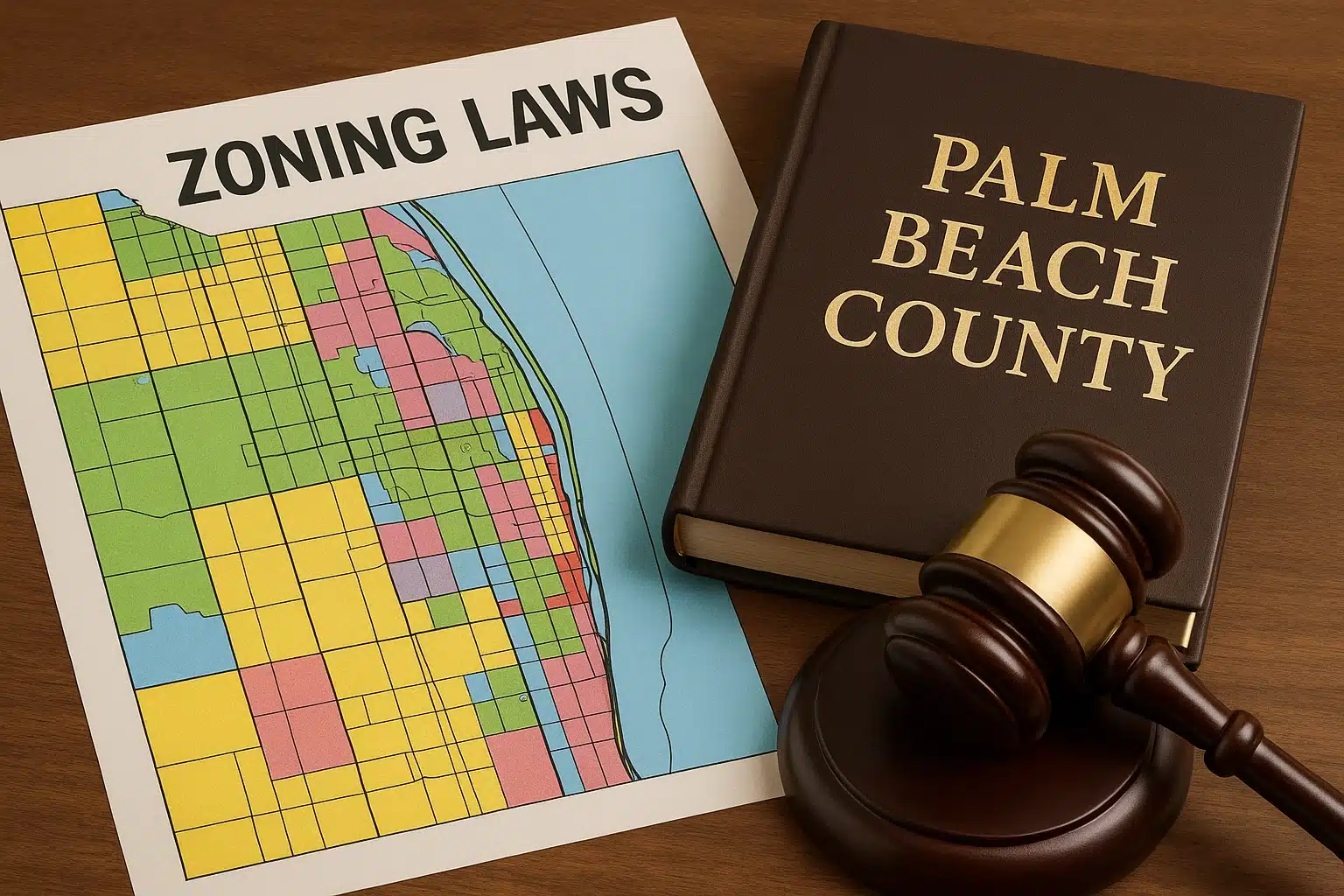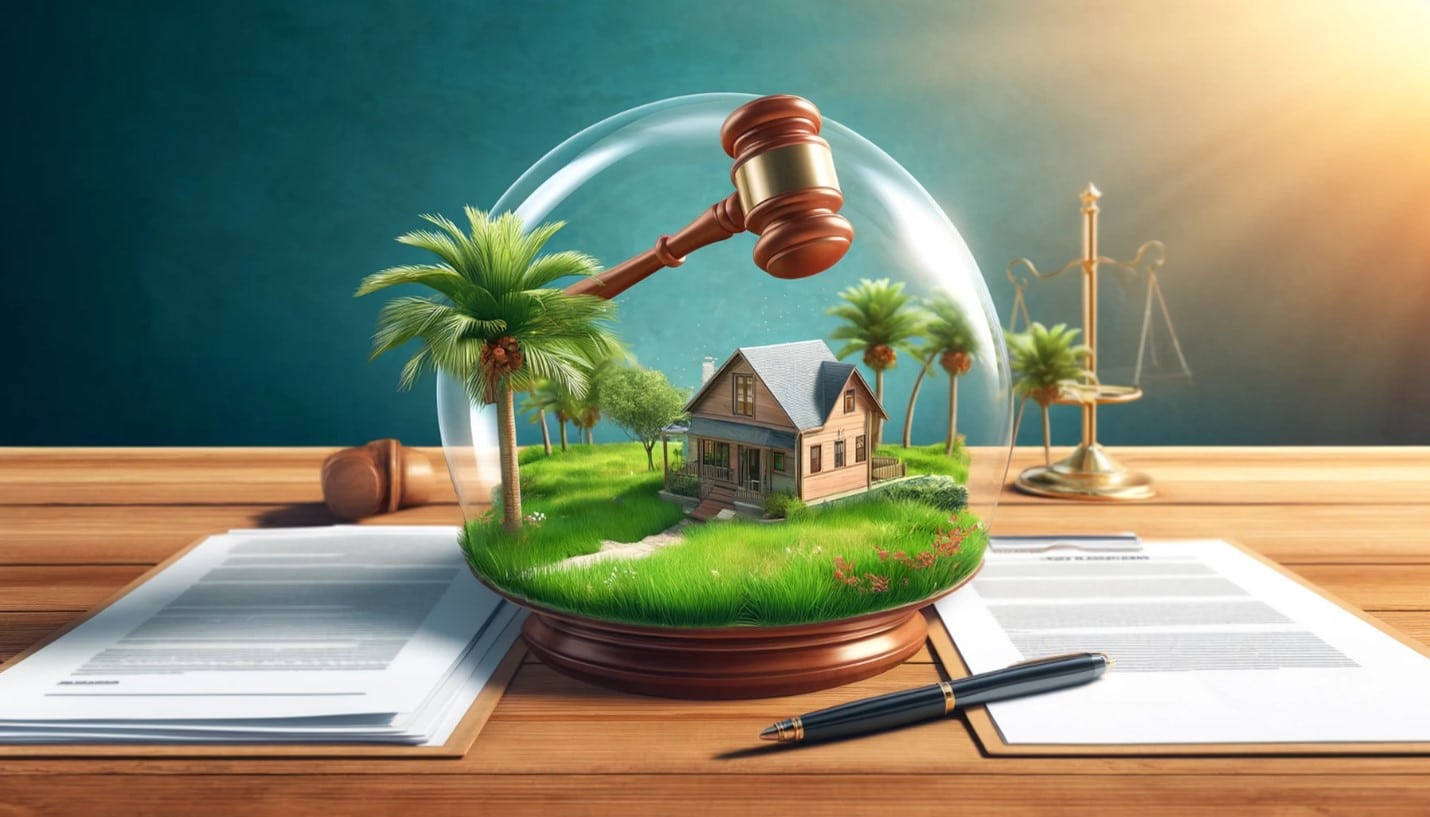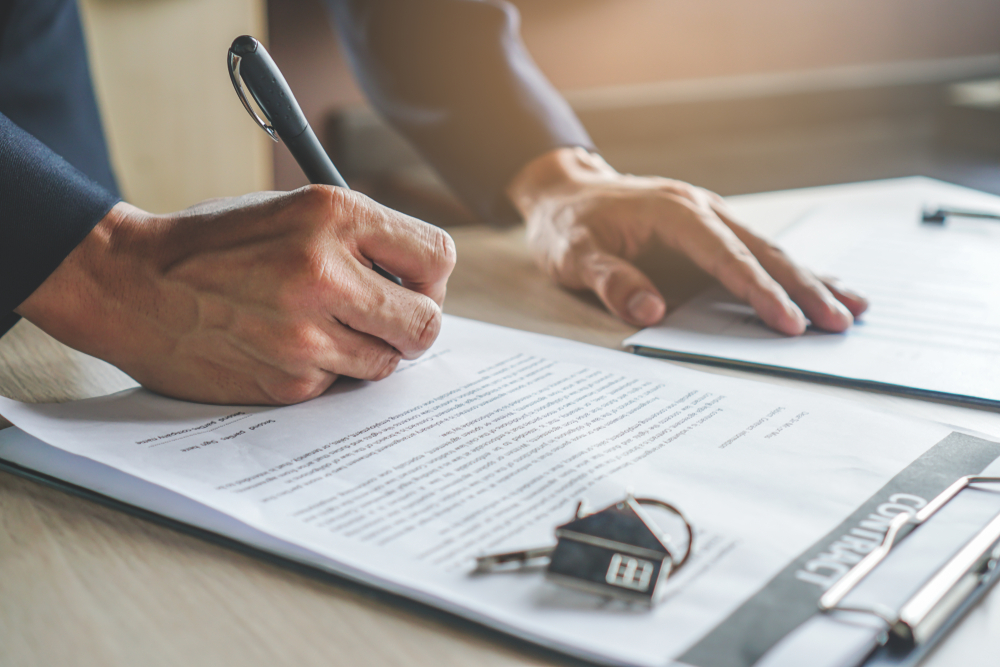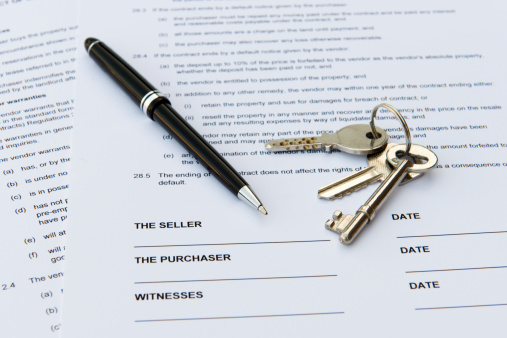Table of Contents
Understanding Zoning Laws in Palm Beach County: A Guide for Investors & Developers
By Derek M. Jorgensen, Esquire
Scott, Harris, Bryan, Barra & Jorgensen, P.A.
Investing in commercial real estate in Palm Beach County—particularly in growth hubs like West Palm Beach, North Palm Beach, Jupiter Farms, Singer Island, Loxahatchee, and Tequesta—presents exciting opportunities. Yet, to maximize returns and safeguard your investment, a thorough understanding of local zoning laws and regulations is essential. This comprehensive guide delves into zoning classifications, common legal pitfalls, zoning due diligence, zoning amendments, local planning boards, impact fees, environmental zoning considerations, and frequently asked questions and explains why partnering with a commercial real estate attorney like Derek M. Jorgensen or Justin J. Shepard is invaluable.
The Risks of Misunderstanding Zoning Laws
Zoning laws dictate how properties can be used within specific regions. Misinterpreting or neglecting these laws can lead to serious legal and financial setbacks, including:
- Fines and Penalties: Violations of zoning laws can result in substantial fines, which can halt your project or impose significant financial strain.
- Delays in Development: Noncompliance with zoning regulations can stall project timelines, severely impacting profitability.
- Forced Modifications or Demolition: Unauthorized structures or uses may require costly adjustments or complete demolition.
- Litigation: Zoning disputes often escalate into lengthy legal battles, leading to high attorney fees and prolonged uncertainty.
Without proper legal guidance, minor oversights can quickly escalate into significant roadblocks.
Zoning Classifications Explained
Palm Beach County employs various zoning classifications, each with unique property use rules. Common categories include:
- Residential Zoning: Designated strictly for residential use, limiting commercial activity to protect community integrity.
- Commercial Zoning: Permits retail, offices, restaurants, and service businesses.
- Industrial Zoning: Suitable for manufacturing, warehousing, and related industrial activities.
- Agricultural Zoning: Focused on farming, livestock, and agriculture-related activities.
- Mixed-Use Zoning: Allows a blend of residential, commercial, and sometimes industrial uses, enhancing community flexibility.
- Historic Preservation Zoning: Designed to preserve areas of historical significance, limiting alterations to existing structures.
Investors must understand the specifics of each classification and ensure their intended property use aligns seamlessly with local zoning ordinances.
Critical Factors in Zoning Compliance & Lease Negotiations
Effective lease negotiations require meticulous attention to zoning compliance. Essential considerations include:
- Permitted Uses and Restrictions: Clearly define allowable business activities to avoid future disputes.
- Future Zoning Changes: Anticipate possible amendments that might affect long-term property viability.
- Zoning Variances and Exceptions: Understanding how to secure variances or conditional uses when needed legally.
- Environmental Compliance: Ensure adherence to environmental regulations tied to zoning ordinances, including protection of wetlands and wildlife habitats.
An experienced commercial lease attorney ensures these critical elements are explicitly addressed within lease agreements.
Zoning Due Diligence
Conducting zoning due diligence before purchasing or leasing property is crucial. Key aspects of zoning due diligence include:
- Zoning Verification: Official confirmation from local authorities that the property’s intended use complies with current zoning laws.
- Historical Zoning Reviews: Examination of past zoning changes to assess potential future risks or shifts in allowable property uses.
- Community Planning Insights: Reviewing county and city master plans for clues on future development trends that might impact property valuation or use.
Zoning Amendments and Variances
Investors must understand zoning amendments and variances:
- Zoning Amendments: Official changes in zoning laws typically initiated by local governments to reflect evolving community needs.
- Zoning Variances: Special permissions allowing property owners to deviate slightly from zoning laws when strict compliance causes hardship without compromising community interests.
- Conditional Uses: Permissions granted for specific uses that require additional oversight or approval, often including conditions designed to mitigate impact on the surrounding community.
Role of Local Planning Boards and Commissions
Local planning boards, such as the Palm Beach County Zoning Commission, play a significant role in zoning decisions. They:
- Conduct public hearings on zoning changes, variances, and special permissions.
- Review applications to ensure compliance with comprehensive plans.
- Provide recommendations to governing bodies for final zoning approvals.
Understanding and engaging with these boards can facilitate smoother transactions and quicker approvals.
Impact Fees and Associated Costs
Zoning significantly impacts local impact fees, including:
- Transportation Fees: Assessed based on anticipated traffic increases from developments.
- Education Fees: These fees are charged to residential developments to support school infrastructure.
- Utility Fees: Applied to cover expansions and improvements of utilities such as water, sewer, and electrical infrastructure.
Understanding these fees helps in accurate budgeting and determining the financial feasibility of projects.
Environmental and Conservation Zoning Issues
Palm Beach County’s zoning laws include environmental and conservation considerations to protect natural habitats and sensitive ecosystems. Restrictions may involve:
- Limited development near wetlands, coastal areas, or habitats of endangered species.
- Requirements for environmental impact studies.
- Implementation of green building practices and sustainable development initiatives.
Awareness of these restrictions is vital to avoid costly project delays or denials.
Frequently Asked Questions (FAQs)
What happens if I violate zoning laws unintentionally?
Even accidental violations can result in penalties. Immediate consultation with an attorney can help mitigate repercussions.
Can zoning laws change after I purchase a property?
Yes. Staying informed about local planning board meetings can help you anticipate potential changes.
What is a non-conforming use?
It refers to property use that was once compliant but no longer aligns with current zoning due to changes in law. Such uses are often “grandfathered” but can limit future expansions.
How do I appeal a zoning decision?
Appeals must follow specific procedures outlined by local zoning authorities. An attorney can guide you through the appeal process effectively.
Real-Life Pitfalls in Palm Beach County
Scenario 1: Retail Expansion in Jupiter Farms
A business owner expanded retail operations without verifying zoning laws, inadvertently violating residential zoning rules. The business was forced into costly litigation and substantial project delays, facing severe financial loss.
Scenario 2: Restaurant Development in West Palm Beach
An investor overlooked mixed-use zoning constraints, assuming broader commercial permissions. The oversight resulted in costly construction adjustments and extended timelines, significantly exceeding initial budgets.
Scenario 3: Industrial Operation in Loxahatchee
A manufacturing facility was established without proper zoning permits in an agricultural zone, leading to legal action from the county, heavy fines, and eventual forced relocation.
Protect Your Investment—Consult with Our Attorneys Today
Navigating zoning regulations in Palm Beach County demands precise legal insight. At Scott, Harris, Bryan, Barra & Jorgensen, P.A., Derek M. Jorgensen and Justin J. Shepard provide comprehensive guidance, ensuring your commercial real estate ventures comply fully with local zoning laws. Serving communities including West Palm Beach, North Palm Beach, Jupiter Farms, Singer Island, Loxahatchee, and Tequesta, our attorneys are dedicated to safeguarding your investment.
Don’t leave zoning compliance to chance. Schedule a consultation today with Derek M. Jorgensen or Justin J. Shepard, and gain the peace of mind your investment deserves.








